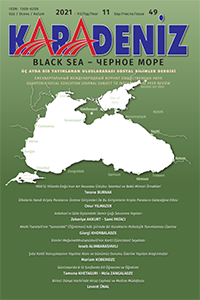ХРОНОТОП В СОВРЕМЕННОЙ ПРОЗЕ КАЗАХСТАНА
CHRONOTOPE IN MODERN PROSE OF KAZAKHSTAN
Author(s): Ergali ESBOSINOV, Samal Serikova, Diana SabirovaSubject(s): Studies of Literature, Theory of Literature
Published by: Kültür Ajans Tanıtım ve Organizasyon
Keywords: chronotope; space; time; prose; Kazakhstan; artistic world; modern Kazakh women;
Summary/Abstract: The chronotope issue has been relevant in literary criticism for several decades. Furthermore, Plato, argued that the essence of art is an imitation of real life. Aristotle pointed out that art creates its own world as something possible or probable and thereby reveals the essential properties of the real world. This article attempts to summarize the main research results on the problem of spatial images and the chronotope as a whole and thereby determine what is the specificity of the image of space, what is its role in a particular work. The purpose of the study is to establish the role of the chronotope in the recreation of the artistic image of Kazakhstan. In modern prose, chronotopic parameters are traced, the topography and symbolism of urban space are examined and its essential characteristics are given. In our opinion, the chronotope is an important modeling tool of literature. The appeal to this problem is due to the fact that the organization of the chronotope in the modern literature of Kazakhstan has become much more complicated in comparison with the traditional space-time paradigms. Anel Meken and Anastasia Skripnikova demonstrate their virtuoso “play with time and space“. Time and space set the parameters of the artistic world of the work. Their relationship in prose reflects the structure of the author's consciousness, their worldview, the system of philosophical ideas and, therefore, their interpretation is a search for means of expressing the author's idea. The study of the categories of time and space allows one to penetrate deeper into the "fabric" of a work of art, to reveal the specifics of its construction, to determine the concept of the writer's world. However, despite such different positions of researchers, controversy continues to this day in literary criticism.
Journal: Karadeniz Uluslararası Bilimsel Dergi
- Issue Year: 1/2021
- Issue No: 49
- Page Range: 273-283
- Page Count: 11
- Language: Russian

